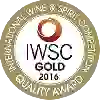
Winery Tesseron CognacLot No. 53 X.O. Perfection 1er Cru de Cognac
This wine is composed of 100% of the grape variety Ugni blanc.
This wine generally goes well with
The Lot No. 53 X.O. Perfection 1er Cru de Cognac of the Winery Tesseron Cognac is in the top 20 of wines of Cognac.
Wine flavors and olphactive analysis
Details and technical informations about Winery Tesseron Cognac's Lot No. 53 X.O. Perfection 1er Cru de Cognac.
Discover the grape variety: Colombard
Colombard is one of the oldest grape varieties in the Charentes. This golden white grape variety is a cross between Chenin and Gouais. The young leaves of colombard are yellow with bronze patches. The adult leaves may be three-lobed or whole, depending on the variety. Its branches are cottony. The bunches of this variety are thick and cylindrical. Its elliptical berries are medium-sized. They change color until they ripen, ranging from greenish white to golden yellow. Colombard is associated with an average budding. It is particularly susceptible to leafhoppers, grape worms, mites, mildew, powdery mildew and gray mold. It is also sensitive to water stress, but is not very sensitive to wind. It ripens late in the second half of the year. There are a dozen approved clones of Colombard, the best known of which are 608, 607 and 606. This variety produces a full-bodied, fine white wine. Aromas of lime, nectarine, boxwood, citrus and exotic fruits are released.
Last vintages of this wine
The best vintages of Lot No. 53 X.O. Perfection 1er Cru de Cognac from Winery Tesseron Cognac are N.V.
Informations about the Winery Tesseron Cognac
The Winery Tesseron Cognac is one of of the world's greatest estates. It offers 4 wines for sale in the of Cognac to come and discover on site or to buy online.
The wine region of Cognac
Cognac is the most famous brandy in the world, more famous even than its OldGascon cousin, Armagnac. It comes from the Charentais, a vast region of western France immediately North of Bordeaux, and takes its name from the historic town of Cognac - the long-standing epicentre of local brandy production. In French, cognac is technically classified as an eau-de-vie de vin - a category that covers all spirits distilled from wine. The Full and official name of the brandy is actually "Eau-de-Vie de Cognac" or "Eau-de-Vie des Charentes", but the Short version has become so common that these longer versions almost never appear on labels.
The word of the wine: Shoulder
The upper part of the bottle located at the base of the shoulder-shaped neck.












